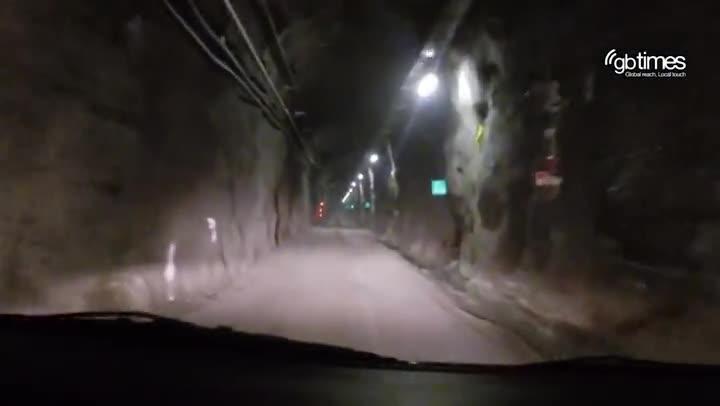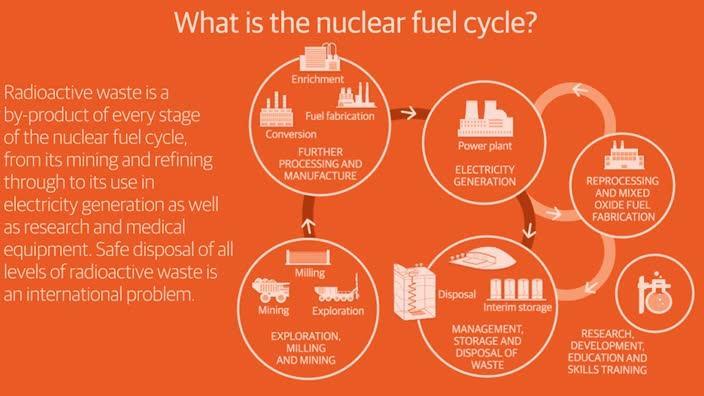Daniel Wills: Final decision on nuclear waste repository in South Australia could be years away
IT could be years before a final decision on a nuclear waste repository in South Australia is made, writes Daniel Wills.

PREMIER Jay Weatherill is in the air, en route to the farthest corner of the Earth, where he’ll examine a cave that’s being dug as an eternal tomb for nuclear waste.
Drilling to 500 metres below the icy surface of the Eurajoki region of southern Finland is under way as construction of Onkalo, which translates to the “cave” or “cavity”, is being built.
It will be the first permanent disposal facility for spent nuclear fuel in the world. Engineers plan to spend the next century filling it with canisters of waste, and then seal the shaft off forever.
The best estimates that science can provide suggest the waste will sit there for another 7.6 billion years, give or take a bit, until a day when the Earth is ultimately eaten by the Sun.
South Australia has a few pretty big decisions to make in the course of the next few years and will soon begin a slow move from the phase of debating a nuclear dump to starting to decide.
A year and a half ago, Mr Weatherill stunned the state and turned decades of Labor orthodoxy on its head by calling the Nuclear Fuel Cycle Royal Commission.
Four months ago, it delivered a final report that concluded an almost unimaginable amount of wealth could be bestowed on SA if it chose to take high-level nuclear waste from around the world and store it for all time.
If a decision to proceed is eventually taken, it would stand as second only to the arrival of whites on this land 180 years ago as the most dramatic moment in SA’s living history.
The first key date will be December this year, because Mr Weatherill has said the Government will reveal a position to State Parliament before the Christmas break. This week, some flesh was put on the bone about what that will be. Likely, a decision to keep talking, if everyone agrees.
A business plan attached to the Royal Commission report laid out an ambitious 10-year timeline from its release to the first arrival of waste from countries like Japan, Taiwan or Korea.
Along the way are a string of key points at which the proposal could be stopped in its tracks.
Failure to find a site, customer, social licence, or political agreement would all be deal-breakers.
The point of no return may not come for 15 to 20 years, if a first barrel of waste does arrive.
Speaking to The Advertiser ahead of his departure this week, Mr Weatherill said he was leaning towards a “proceed with caution” decision this year, which he likened to an amber traffic light, that would trigger a much deeper analysis of the potential costs and benefits.
“One of the next phases will be to carry out much more detailed work in relation to exactly the technology that would be used, where would it be sited and with whom would we be having international partnerships,” he said.
“That’s the work that is going on between now and the end of the year. There’s a pretty important threshold question of do we even get to that stage.
“My sense of it is that there is a growing willingness to at least have a discussion.”
The first test will be a meeting of Labor’s state convention expected next month, where internal tensions that have been hidden are likely to spill over for the first time.

SA Unions and Labor backbencher Steph Key are beginning to raise concerns.
Even if that hurdle is passed, the federal division of the Labor Party could prove even tougher to convince as it fights off challenges from the Greens in eastern states seats.
Mr Weatherill said the handling of the nuclear issue had become “a massive test for our democracy” and an experiment in how large, complex issues could be tackled and resolved.
“Complex issues that are challenging, routinely at the federal and state level proves difficult for our political system to consume, and I believe we do need a different way of doing politics.”
And there is an emerging degree of scepticism on the conservative side of state politics.
Opposition Leader Steven Marshall said he feared the state risked being distracted by a far-off vision of economic utopia instead of focusing on immediate reforms to its economy.
The Liberals have also raised concerns about the cost to taxpayers of investigating nuclear storage without any certainty that international customers would want to use it.
Mr Marshall said the Opposition was open to developing the industry in SA but the Government had shown a lack of focus in examining critical and urgent aspects of the proposal.
“There is just no way that SA can wait 15 years to have a nuclear-led recovery,” he said.
“We’ve got a crisis at the moment and we need the Government applying themselves to the tasks at hand which are high unemployment, high electricity prices and a health system in crisis.”
What is now abundantly clear is this judgment will not be made overnight, nor is it a single decision. Like the industry that SA is now weighing up, it will span the lifetimes of several parliaments and likely be debated by many different governments and premiers.
It will be broken down into a multitude of small decisions about where to put a dump, how to bring the waste in, who to make a deal with and how to compensate communities.
A string of a thousand “yes” calls must be looped together. A single “no” will bring it to a screeching halt. The likelihood of everything coming together is much higher than it was two decades ago when the idea was first raised, but still probably less than likely.
And given how long we’ll have to deal with the fallout of a glowing green light if one is ever given, there’s probably little to be lost by getting there in the slow lane. It may be the only way.
